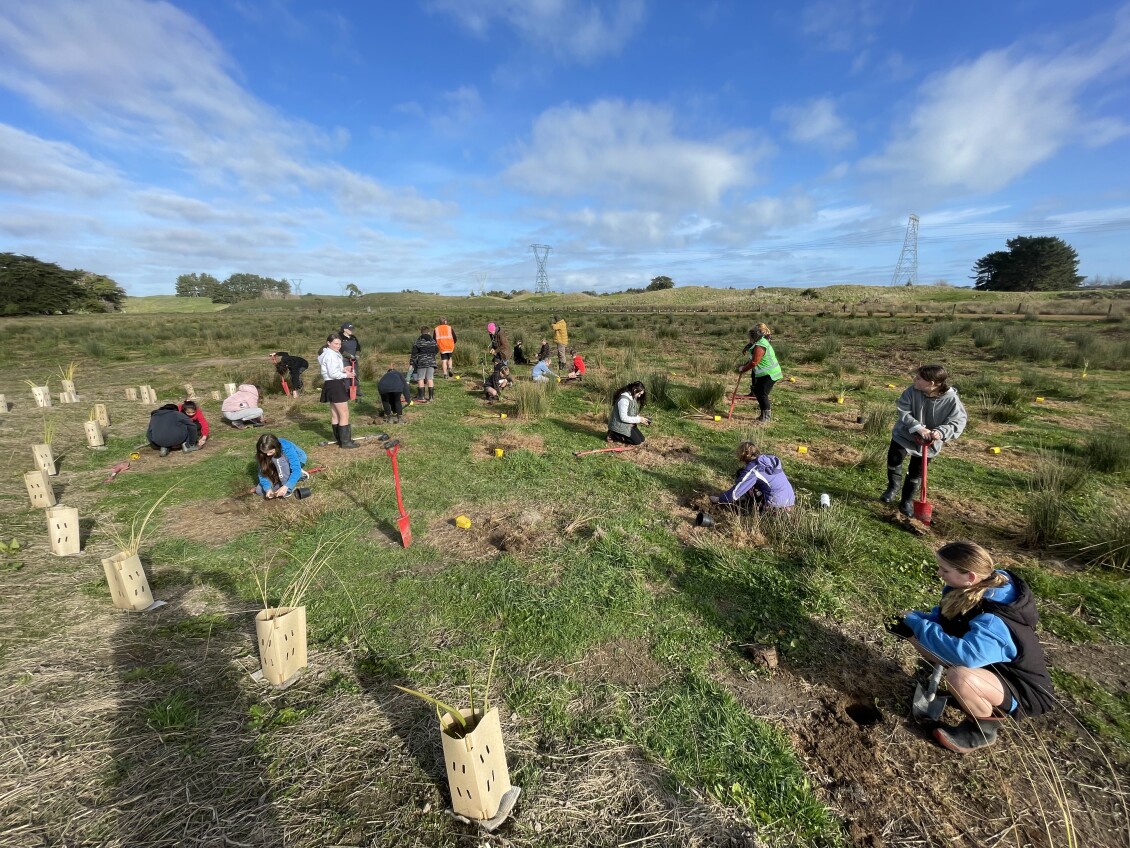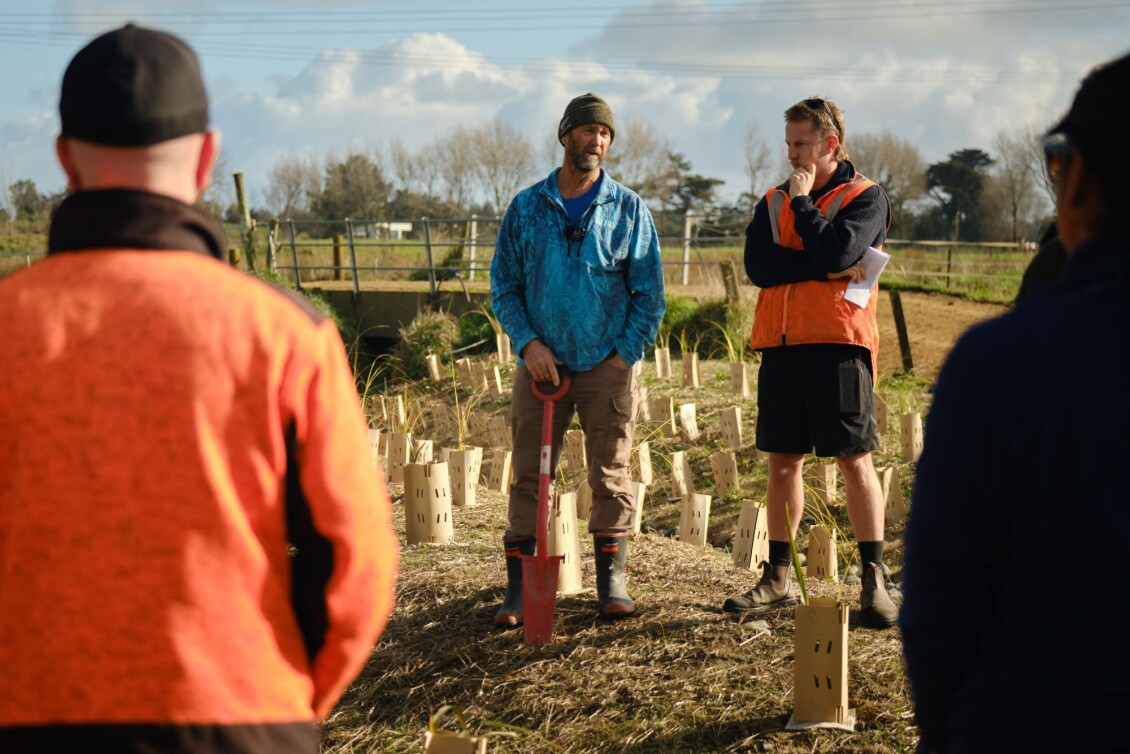Next generation play important role in restoring Te Horo wetland
Twenty four tamariki from Te Horo School joined Greater Wellington on Friday 26 July for a planting day around the edges of Parahamuti, a wetland located on a dairy farm in Te Horo.
The farm is owned by Shane and Eileen Walker, who are restoring a section of their land to wetland with the support of Greater Wellington, Ngā Hapū o Ōtaki, Fonterra, and Kāpiti Coast District Council.
Eileen Walker says transforming pasture to wetland is “doing what’s right for the land”.
“Fish friendly weirs have been built in the area, allowing water to pool naturally as a wetland rather than draining away to maintain pasture,” Walker says.
“In reversing the draining system we’re returning the land to its natural state, long before the land was used for farming.
“As we plant more native species around the wetland, we hope to see more birds, wildlife, and the ecosystem return to a healthy state of being.”
The Walkers sought advice from Ngā Hapū o Ōtaki who identified and endorsed the name Parahamuti as the original name for the area. Prior to the redirection of the Mangaone Stream to Te Horo Beach in the mid 1900’s, Parahamuti was the name of the catchment and surrounding land.
“Parahamuti is a living entity, and we are thrilled the tamariki of Te Horo School are joining us on our journey to restore her mauri, her lifeforce, and watch her grow as they do,” adds Walker.
The wetland area is currently 7.2 hectares, and is expected to grow to 12 hectares over the coming years through planting days and restoration projects.
Te Horo School Principal Allie McHugo says the students helped plant around 400 trees around Parahamuti.
“These students of ours are keen environmentalists, who garden at school and care for our whenua. They wanted to join the planting day as part of their interest in, and responsibility to, the community they live in,” says Principal McHugo.
“They are senior students who are living the school’s H.E.A.R.T values, which are all about what it means to be a good person.”
David Boone, ecosystems and community manager at Greater Wellington, says the regional council is increasingly providing advice and support to landowners, with a focus on conservation.
“We appreciate working with landowners to protect and restore their land, especially when it comes to freshwater management and areas of rich biodiversity,” David Boone says.
“Greater Wellington provides funding for conservation activities such as planting, fish passage remediation, and freshwater management – for the greater environmental good.”
“A lot of planning and science has gone into this project,” adds Walker’s husband, Shane. “We enjoy the support and advice we receive from Greater Wellington, especially senior restoration advisor Jamie Peryer, who has been excellent to work with. It’s been neat to see Greater Wellington as engaged in the project as we are.”
Learn more about how Greater Wellington can support conservation projects on private land.


Get in touch
- Phone:
- 0800 496 734
- Email:
- info@gw.govt.nz
